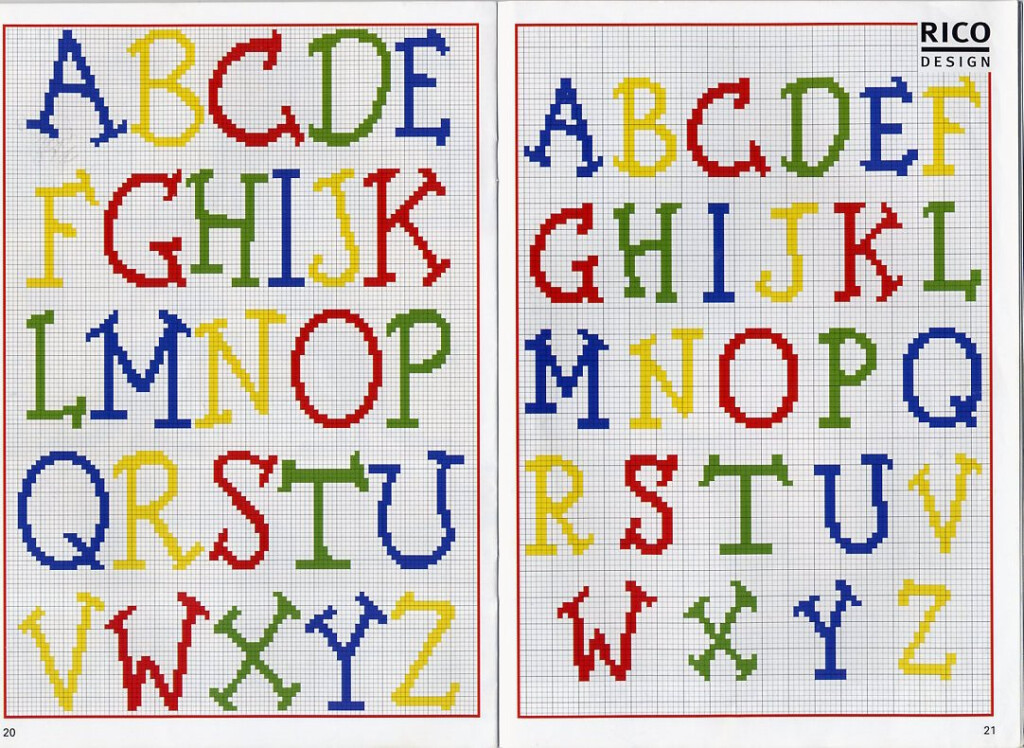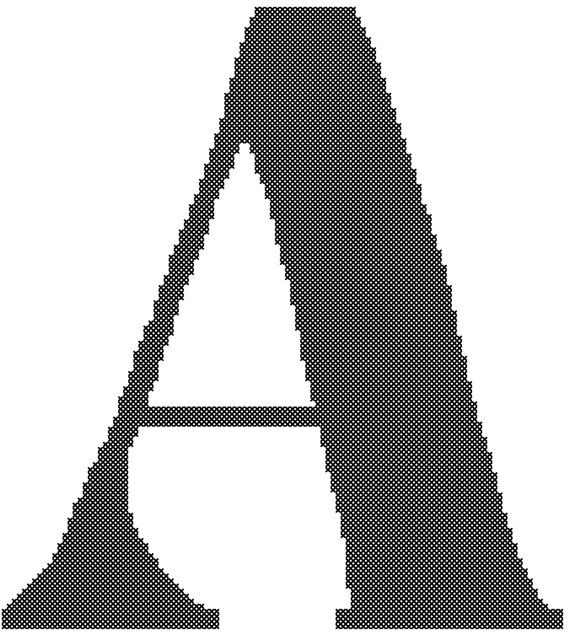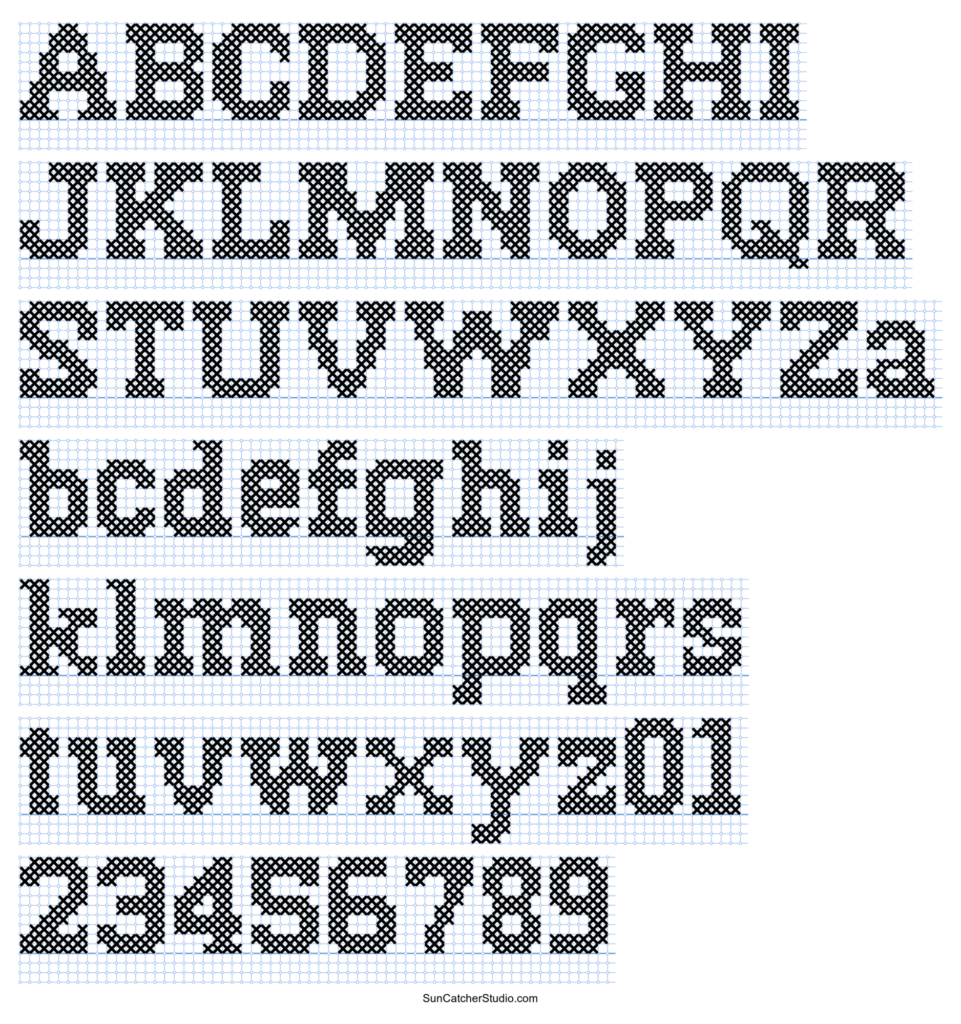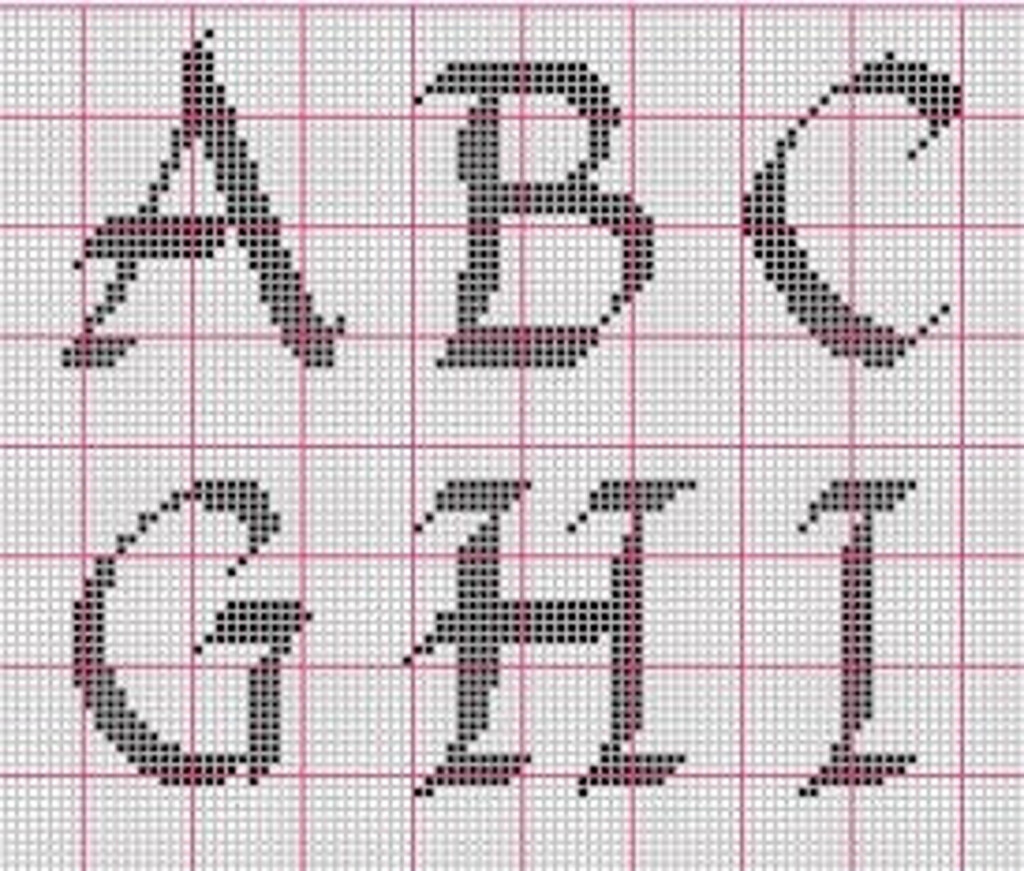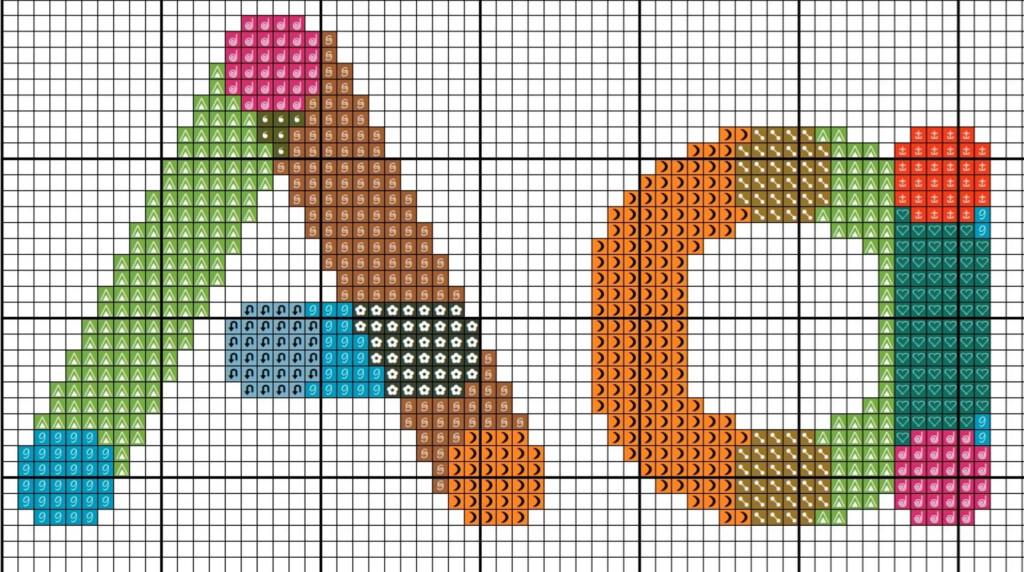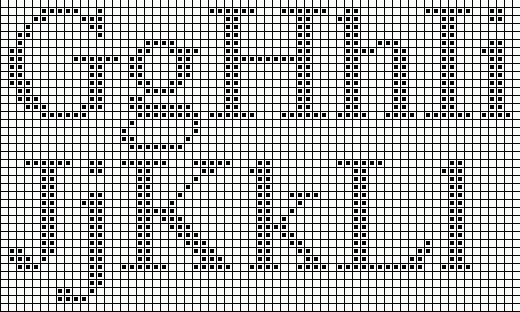Large Cross Stitch Alphabet Patterns – Cross stitch is a classic and relaxing embroidery technique that allows you to produce sensational designs with just a needle, thread, and fabric. Whether you’re a novice or an experienced stitcher, comprehending Large Cross Stitch Alphabet Patterns is vital to crafting beautiful pieces. In this guide, we’ll discover everything you require to find out about cross stitch patterns, from vital materials to innovative strategies, guaranteeing that you gain the confidence to create complex and professional-quality designs.
What is a Large Cross Stitch Alphabet Patterns?
A Large Cross Stitch Alphabet Patterns is a grid-based design that overviews stitchers in developing a stitched image. Each square on the pattern stands for a stitch, with different colors and symbols representing details thread shades. These patterns can range from simple concepts to intricate artworks, using an endless range of innovative opportunities. Recognizing how to review and follow these patterns appropriately is necessary for both precision and efficiency in your sewing projects.
Why Use a Pattern?
- Uniformity: Ensures harmony in stitches and design, making your job show up polished and professional.
- Support: Helps novices comply with a structured technique, reducing errors and complication.
- Imaginative Freedom: Allows customization with various color selections, making every piece distinct to the stitcher.
- Scalability: Can be adjusted to various fabric dimensions and stitch counts, making it versatile for numerous job dimensions.
- Effectiveness: Saves time by providing a clear roadmap, assisting stitchers prepare their work in advance and avoid unneeded errors.
Products Needed for Large Cross Stitch Alphabet Patterns
To get going with cross stitch, you’ll require the appropriate products. Below’s a breakdown of essential tools:
| Material | Summary |
|---|---|
| Fabric | Aida cloth is frequently made use of because of its easy-to-count grid. Linen and evenweave textiles supply finer detail, ideal for innovative stitchers. |
| Strings | Embroidery floss, commonly DMC, Anchor, or Madeira brands. Readily available in thousands of shades to bring styles to life. |
| Needles | Tapestry needles with blunt ideas to avoid fabric damage. The ideal size depends on fabric kind and individual choice. |
| Hoop/Frame | Maintains fabric tight, preventing creases and unequal sewing, ensuring consistency in your stitches. |
| Scissors | Tiny, sharp embroidery scissors for specific thread cutting and trimming excess fabric. |
| Pattern Chart | Printed or electronic Large Cross Stitch Alphabet Patterns for support, giving clear guidelines on stitch positioning and shade choice. |
| Source of light | A well-lit work space assists prevent eye stress and enables better precision in stitch placement. |
| Thread Organizer | Keeps embroidery floss tangle-free and very easy to gain access to, making color modifications a lot more efficient. |
Reading a Large Cross Stitch Alphabet Patterns
A well-designed Large Cross Stitch Alphabet Patterns gives all the required information to bring your design to life. Comprehending exactly how to analyze a pattern appropriately ensures precision and efficiency in your job.
1. Signs and Color Key
Patterns use signs to represent various thread shades. Each symbol represents a details floss color, typically detailed in a legend with the thread brand name and number. Acquainting on your own with this legend prior to beginning will certainly make sewing much smoother.
2. Grid System
Large Cross Stitch Alphabet Patterns are organized on a grid where each square represents one stitch. The darker lines show every 10 squares, aiding you count and position your stitches precisely. This framework guarantees positioning and avoids blunders when stitching big, intricate layouts.
3. Stitch Types
- Full Cross Stitches (X): The conventional stitch, forming an X shape that provides complete insurance coverage.
- Fifty Percent Stitches (/): Used for shading and great details, producing a smoother gradient effect.
- Backstitching (-): Used to outline and define shapes, adding depth and clearness to the design.
- French Knots (o): Adds appearance and attractive accents, generally made use of for eyes, flowers, and embellishments.
- Long Stitches (–): Stitches that extend multiple squares to create unique results, usually utilized in specialty styles.
4. Beginning Point
The majority of patterns recommend beginning at the center to make certain appropriate alignment. Locate the center by folding the fabric in half both means, noting the center with a water-soluble pen or a tiny stitch. Beginning with the center assists keep balance and balance throughout the task.
Basic Cross Stitch Techniques
Mastering these methods will improve your sewing effectiveness and results, guaranteeing that your jobs look specialist and refined.
1. Preparing Your Fabric
- Wash and iron fabric before beginning to get rid of wrinkles and possible spots.
- Make use of a hoop or frame to maintain it tight, avoiding misaligned stitches.
- If using Aida fabric, bind the edges with covering up tape, fray check, or a zigzag stitch to stop tearing gradually.
- Think about gridding the fabric with cleanable fabric pens to help with placement.
2. Threading the Needle
- Cut a piece of embroidery floss around 18 inches long to avoid tangling.
- Utilize one to 3 hairs, depending on fabric count and desired coverage for ideal outcomes.
- Thread the needle and secure the beginning end with a loophole or small knot, or use the “loop method” for a neater back.
3. Stitching Methods
- Paddle Method: Complete one half-stitch (/) across a row, after that return with the other half () to create an X. This is useful for maintaining stitches uniform.
- One-by-One Method: Complete each full X before transferring to the following stitch, perfect for patterns with frequent shade changes.
- Parking Method: Useful for complicated styles, allowing stitchers to work with multiple colors without confusion.
4. Safeguarding Threads
- Prevent knots at the back of your work; rather, weave the thread under previous stitches for a clean and expert finish.
- Keep the back cool to stop thickness and irregular stress, which can distort the fabric.
Usual Mistakes & & How to Avoid Them
| Error | Remedy |
| Miscounting stitches | Constantly cross-check the grid and make use of a highlighter to mark completed sections. Double-check prior to progressing. |
| Unequal stress | Maintain consistent tension; avoid drawing too tight or leaving stitches also loose. Consistency is crucial to professional-looking job. |
| Incorrect thread color | Double-check the pattern trick before starting each section to avoid lengthy blunders. |
| Fraying fabric | Protected edges with tape or a sewing device zigzag stitch. Making use of a hoop aids decrease fraying. |
| Messy back | Maintain the back tidy by weaving in loose ends nicely. This will stop swellings when framing the finished piece. |
Download Large Cross Stitch Alphabet Patterns
Final Thoughts
Large Cross Stitch Alphabet Patterns supply countless opportunities for imagination and workmanship. Whether you’re following a classic design or producing something distinct, comprehending the fundamentals of checking out patterns, selecting materials, and refining techniques will certainly aid you create sensational jobs. Maintain exercising, experimenting, and most significantly, taking pleasure in the process of sewing! Cross stitch is not just a pastime– it’s an art kind that permits you to bring intricate styles to life, one stitch each time.
Happy stitching!
